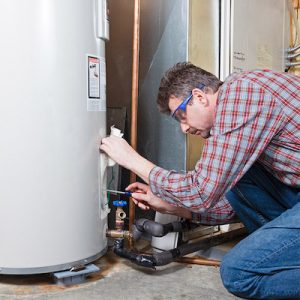 You don’t need us to tell you how essential hot water is to a fully functioning home. You use it to bathe, wash dishes, do laundry.
You don’t need us to tell you how essential hot water is to a fully functioning home. You use it to bathe, wash dishes, do laundry.
In order to ensure a consistent and adequate supply of hot water, you’ll need a hot water heater.
Easy enough, right?
Well, hang on a minute. Anybody who’s been on the hunt for a hot water heater knows just how many options are available to today’s homeowners and property owners.
It can be difficult to decide which model will meet your family’s needs, especially if this is your first time shopping for a hot water heater.
Types of Water Heaters
That’s where Meticulous Plumbing comes in. We want you to have as much information about your future purchase as possible, so you can make a decision you’ll be happy with down the line.
We offer advice and installation for the following types of hot water heaters:
Tankless: As their name indicates, tankless water heaters operate without a storage tank. These space-saving models heat water on demand rather than storing large amounts of pre-heated water. They also provide a constant supply of hot water, ensuring that only what you need gets heated. As a bonus, many of these energy-efficient models are compact and fit perfectly in your hall closet, saving you both space and money.
Hybrid: Hybrid water heaters combine the technology of both tank and tankless water heaters. These models both heat on demand and contain a small reservoir to hold some hot water, so you never run out. Hybrid models can be powered by gas (natural or propane) or electrically run by both a heat pump and conventional electric methods.
Standard tank: Traditional water heaters employ a large tank and a system of pipes to heat and store water in your home. These tanks look like large metal cylinders, hold between 30 gallons and 80 gallons of water, and are heated via a mechanism on the bottom of (or inside) the unit. As the heat rises, your water warms and becomes ready to use.
Water Heater Maintenance
Traditional tank water heaters are simple appliances with a predictable shelf life (typically between eight and 12 years, although some will last much longer).
As with all appliances, water heaters can begin to malfunction — or even stop working — as they age. Fortunately, there are some simple steps that homeowners or property owners can take to ensure their water heater lasts as long as possible.
The secret? Two words: yearly maintenance.
Water heater maintenance includes checking the pressure valve, draining the sediments and ensuring the temperature isn’t set too high. (A water heater’s temperature setting should be somewhere in the neighborhood of 125 degrees Fahrenheit. Manufacturers usually ship new water heaters set at a default temperature of 140 degrees.) Tankless water heaters also need to be flushed out about once a year.
Maintenance can be performed by your friendly neighborhood Meticulous Plumbing representative — or you can take care of it yourself, although you should have at least some familiarity with this type of work before attempting to do so.
When a water heater is malfunctioning or leaking, especially if it’s 10 years or older, it’s likely time to replace it with a new one.
But there’s more good new! Meticulous Plumbing recycles old water heaters and pipes. If it’s time to replace your heater, you can feel good knowing the old appliance won’t sit rusting in a landfill.
Meticulous Plumbing
Now that you know a little bit more about water heaters — what makes them tick; what makes them sick — you should be ready to make an informed choice about a new water heater.
You can count on Meticulous Plumbing’s friendly, expert and dedicated team members to arrive on time and properly install your model. We make sure to attend to every detail of your job and to exceed your expectations in every regard.
Our experienced team is happy to work with you to install a new tank or repair an existing one. If you’re interested in discussing different water heater models to decide which is best for your home, contact our Meticulous Plumbing team today. We promise to tell you everything we know — which is a lot! — so you can make the best decision for your home, your family and your budget.

